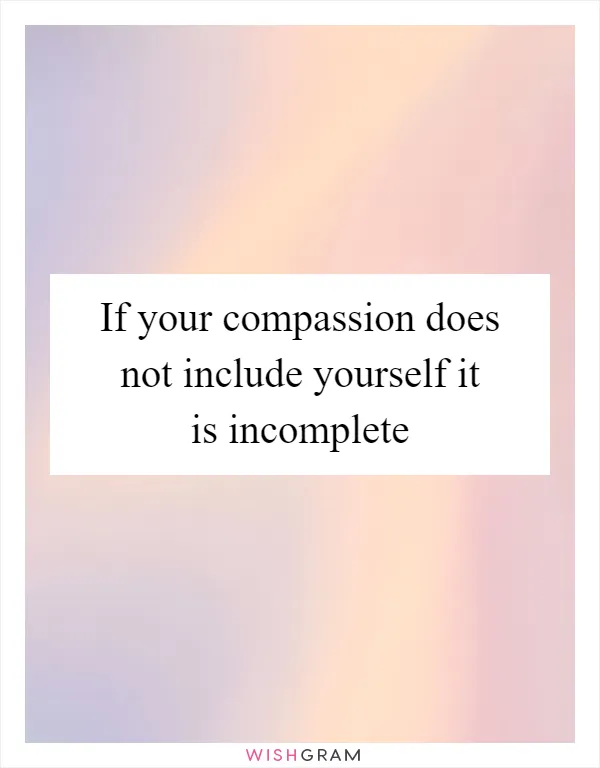If your compassion does not include yourself it is incomplete
Self-compassion is a concept that is often overlooked in our busy lives. We are quick to show compassion and kindness to others, but we often forget to extend that same level of care to ourselves. It is important to remember that self-compassion is not selfish or self-indulgent, but rather a necessary component of overall well-being.
When we neglect to show ourselves compassion, we are doing a disservice to our mental and emotional health. Just as we would not hesitate to comfort a friend in need or offer words of encouragement to a loved one going through a tough time, we should also be willing to offer ourselves the same level of kindness and understanding.
It is easy to be critical of ourselves, to focus on our flaws and shortcomings rather than our strengths and accomplishments. However, self-compassion means recognizing that we are human, that we are not perfect, and that it is okay to make mistakes. It means treating ourselves with the same level of empathy and care that we would offer to someone else in a similar situation.
Practicing self-compassion can have a profound impact on our mental health and overall well-being. When we are kind to ourselves, we are better able to cope with stress, anxiety, and other negative emotions. We are more resilient in the face of challenges and setbacks, and we are better equipped to bounce back from difficult situations.
Self-compassion also allows us to cultivate a greater sense of self-worth and self-acceptance. When we are able to show ourselves kindness and understanding, we are better able to recognize our own value and worth as individuals. We are more likely to set healthy boundaries, prioritize self-care, and engage in activities that bring us joy and fulfillment.
